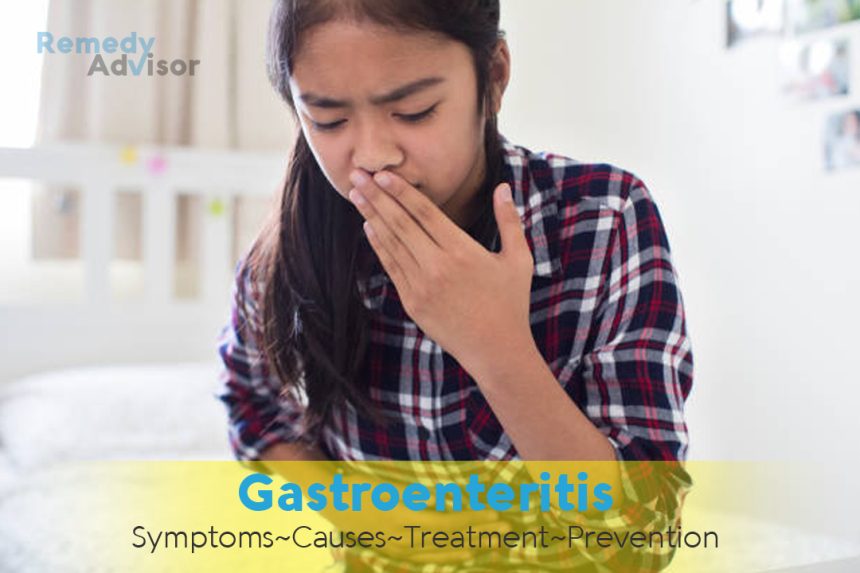What is it
Gastroenteritis is a generic medical term for a nonfatal, self-limiting irritation or infection of the stomach, small intestine and/or colon that typically leads to sudden and often violent gastrointestinal upset. It may be identified as traveler’s diarrhea, stomach flu, food poisoning, or intestinal flu. After the common cold, gastroenteritis is the second most common cause of work absenteeism among adults and a major cause of sickness and mortality among young children.
Symptoms
Gastroenteritis symptoms will vary according to the cause and the gastrointestinal area that’s affected and may include one or more of the following:
- Nausea, vomiting.
- Loss of appetite.
- Diarrhea.
- Abdominal pain or cramps.
- Fever.
What causes it
Gastroenteritis has many possible causes, but specific causes are often unknown or uncertain at best. Bacterial infections are a major cause of traveler’s diarrhea. Food poisoning, caused by foodborne bacteria and viruses, can cause serious illness. Food allergens have been implicated in gastroenteritis as well. The disorder may also be caused by a sudden change in the normal bacterial state of your gastrointestinal tract owing to an illness, the use of antibiotics, or a trip to a foreign country.
What if you do nothing
Gastroenteritis is typically self-limiting, and the associated diarrhea, nausea, vomiting, and abdominal cramping will generally clear within 48 hours. More severe cases must be treated by a physician.
Home remedies
You can treat mild gastroenteritis with the following self-care measures.
Rest
Get plenty of bed rest until your major symptoms have cleared.
Drink
To prevent dehydration from diarrhea or vomiting, drink clear fluids tea, de-fizzed ginger ale, or lemon-lime soda throughout the day. For fluid replacement, drink sports beverages (for adults) or commercially prepared electrolyte-sugar solutions (for infants and children) throughout the day as well. If you are unable to keep any fluids down, take very small sips or try sucking on ice chips.
Eat a BRAT diet
A mild bland diet consisting of bananas, rice, applesauce and toast is recommended on the second day of the illness and for the following two days after all symptoms have disappeared.
Prevention
No specific preventive measures can be taken. However, gastroenteritis may be communicable, so you should take the following preventive measures to keep it from spreading.
Practice good hygiene
To avoid germs that cause gastroenteritis, wash your hands frequently throughout the day, especially after going to the bathroom.
Don’t share
Use your own eating utensils and dishes and store them separately.
Use travel sense
To avoid traveler’s diarrhea when traveling in underdeveloped countries, don’t eat fresh fruits and vegetables and uncooked foods. Don’t drink un-bottled water or beverages.
Be careful with food preparation and storage
You can take a number of simple steps to prevent food contamination and reduce your risk of getting sick from tainted food.







